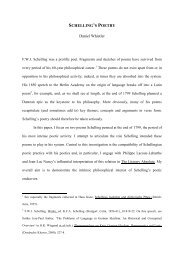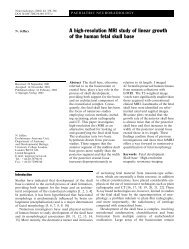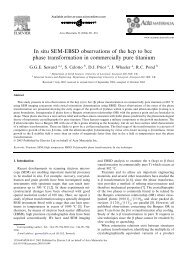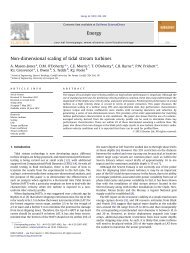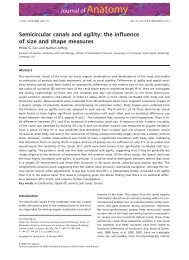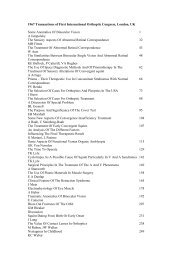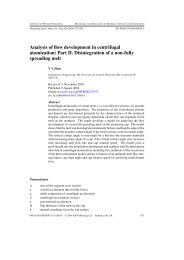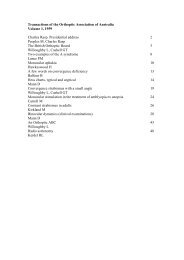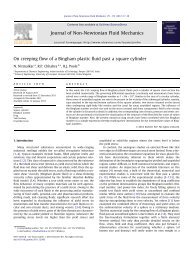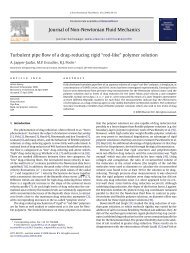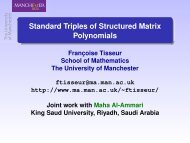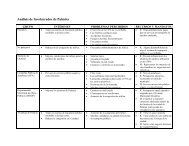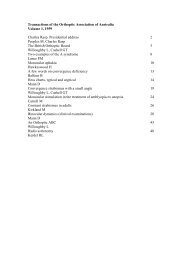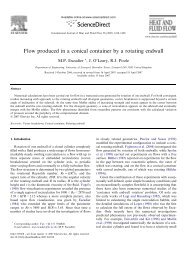The Discipline of Pious Reason: Goethe, Herder, Kant Daniel ...
The Discipline of Pious Reason: Goethe, Herder, Kant Daniel ...
The Discipline of Pious Reason: Goethe, Herder, Kant Daniel ...
Create successful ePaper yourself
Turn your PDF publications into a flip-book with our unique Google optimized e-Paper software.
esponds: ‘God must be held at a distance’. Thought must either possess God or exalt<br />
Him from afar. <strong>The</strong>se two poles exist in a dialectic which circles between yielding to<br />
the desire to fuse with God and cultivating a will which thwarts such desire. Desire<br />
must be both satisfied and unsatisfied. What is crucial is that both moments (despite<br />
their antithetical relation) have an identical result—the suppression <strong>of</strong> piety. Both<br />
pieties put paid to any further critical discussion <strong>of</strong> piety as a concept. It is here we<br />
have the reason for philosophy <strong>of</strong> religion’s silence on this issue and in consequence<br />
the reason for its incessant dogmatism.<br />
This ‘dialectic’ is <strong>of</strong> course just an abstract summary <strong>of</strong> the transitions involved in the<br />
three ‘scenes’ I have described in this essay. On the one hand, piety is a desire for<br />
God. Such is the fundamental principle <strong>of</strong> the neoplatonic piety against which <strong>Goethe</strong>,<br />
<strong>Herder</strong> and <strong>Kant</strong> were reacting. Moreover, they attacked it because it is selfdestructive:<br />
piety is itself destroyed as soon as God is obtained. It obeys the logic <strong>of</strong><br />
desire elucidated by Aristophanes in Plato’s Symposium—the fulfilment <strong>of</strong> desire is<br />
the end <strong>of</strong> desire. Goodchild writes similarly,<br />
<strong>The</strong> <strong>of</strong>fence <strong>of</strong> piety that claims to identify its divinity, whether through ascending<br />
to heaven, or by the divinity ascending to earth, is that it abolishes the temporal<br />
existence <strong>of</strong> piety, and, with it, piety itself. (2002, p. 7)<br />
In the beatific vision, piety becomes redundant to itself. On this view, the goal <strong>of</strong><br />
philosophy is the elimination <strong>of</strong> all talk about piety, for once the desire on which<br />
philosophy is founded (fusion with God) is achieved, a critical philosophy <strong>of</strong> piety is



